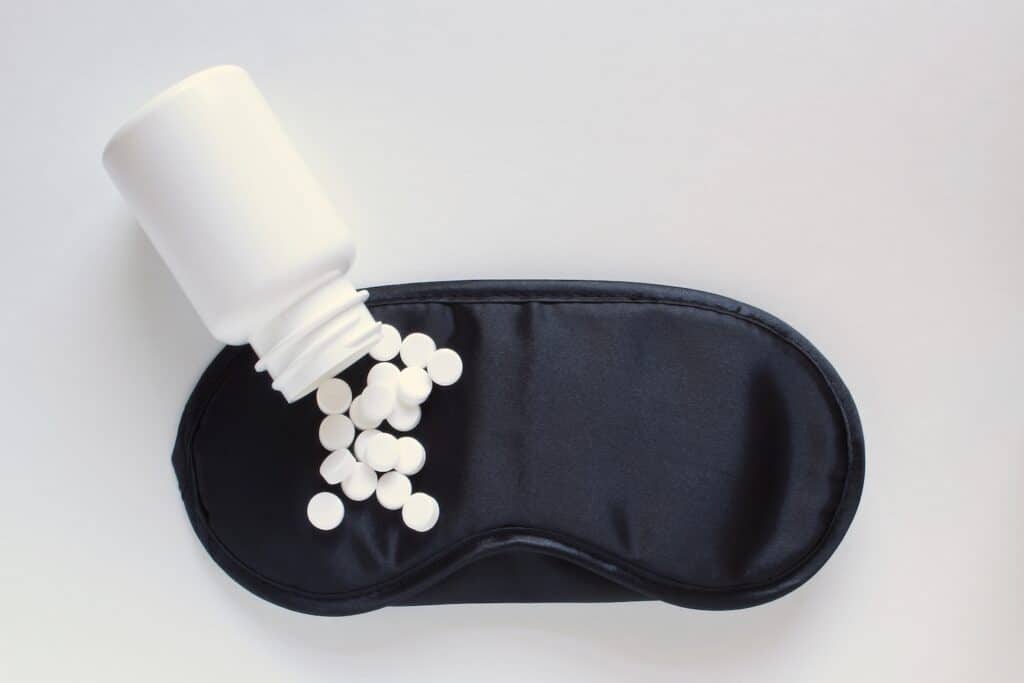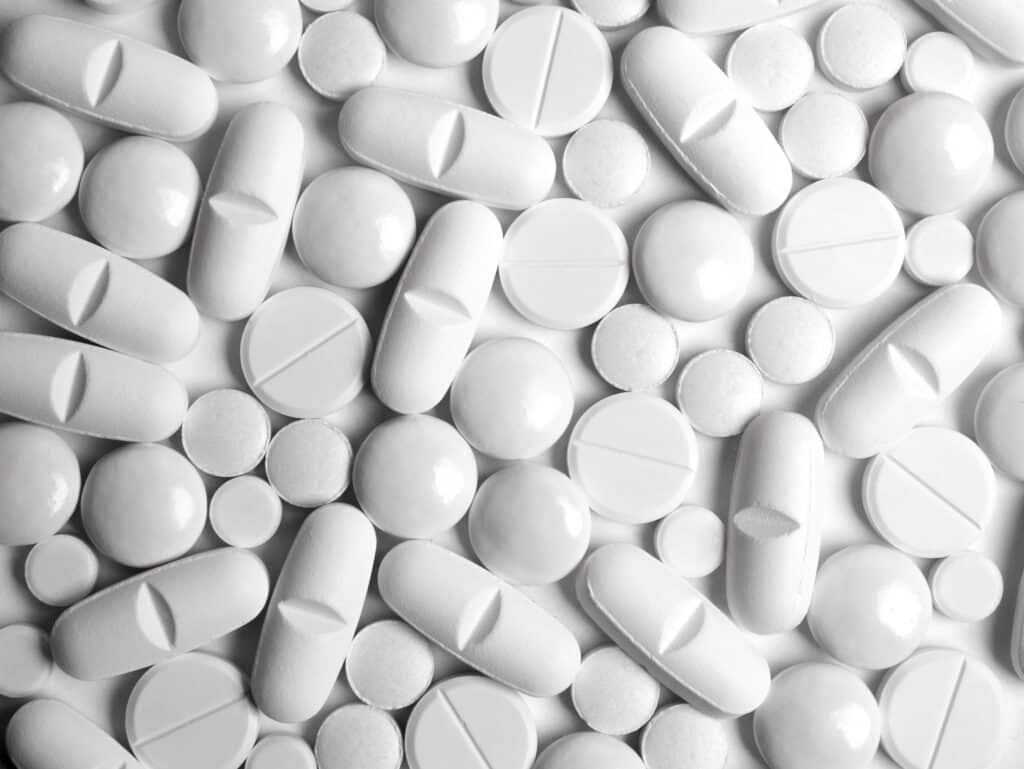
Sleeping pills are commonly prescribed for people who suffer from insomnia or various other sleep disorders. There are also over-the-counter sleeping pills available, and these carry fewer risks, but may not be as effective. Prescription sleeping pills contain psychoactive ingredients known as sedative-hypnotics. They should typically be taken just before bedtime to minimize the likelihood of an injury due to drowsiness.
People are increasingly taking dangerous amounts of prescription sleeping pills. Zolpidem, also known by the brand name Ambien, is a sleeping pill to blame for the bulk of emergency room visits. Between the years 2006 and 2010, the number of patients who attended emergency rooms due to a Zolpidem overdose more than doubled.
These visits attribute to overmedication, wherein patients took more of their sleeping pill than was prescribed to them. In other situations, patients combined sleeping pills with other drugs, such as opioids, narcotics or alcohol, which is becoming more common.
Doctors say that prescription sleep aids are safe when taken as advised. However, this means that they can only be used for a brief amount of time to relieve acute insomnia. While many people suffer from sleep disorders, physicians and experts caution that prescription sleeping pills can never be deemed a long-term cure. They can cause daytime drowsiness, dry mouth, gastrointestinal problems, strange hallucinations, concentration and memory disturbances, and fatigue.
Types of Sleeping Pills
There are many different types of sleeping pills. Benzodiazepines and sedative-hypnotics are the two most common types of prescription sleeping pills. Both have similar effects on the brain and central nervous system and activate the same receptors. Barbiturates were once another widely used sleep aid drug type, but their use has diminished in recent decades.
Restoril and Halcion are two benzodiazepine sleep aids. Lunesta, Rozerem, Belsomra and Sonata are several other common brand-name prescription sleep aids. Prescriptions for Ambien and Intermezzo are also popular. The critical variations between sleeping pills are the amount of time they operate and the type of sleep disturbance they manage. A long-acting sleep aid, for example, is best for someone who gets up often through the night. For someone who has difficulty falling asleep at first, shorter-acting prescription sleeping pills might be preferable.
Is It Addictive to Take Sleeping Pills?
Sleeping pills are habit-forming, but this is a possibility that many people are oblivious of when they start taking them. According to the National Survey on Substance Use and Health, anti-anxiety and sleeping pills have an exceptionally high incidence of misuse among teens, particularly when these medications are prescribed.
Ambien and Lunesta, both sleep aids, are among the most abused opioid medications. There has been evidence of a connection between these tranquilizers and subsequent prescription drug addiction. Addiction and physical dependency are more common when sleep aids are misused.
Sleeping Pill Abuse: Symptoms, Signs and Side Effects
Any sleeping drug, such as Doxepin, can be prescribed if a person has difficulty falling asleep. Others, such as temazepam, triazolam and Lunesta, make a person fall asleep faster and remain in the bloodstream for a more extended period. The majority of sleeping pills are benzodiazepines, which have a greater risk of an opioid use disorder. Still, non-benzodiazepines can still be habit-forming, which makes it essential to know the potential side effects and how to take it correctly.
What Are Sleeping Pills and How Do They Work?
Sleeping pills are a type of prescription drug used to cure various short-term sleeping conditions by assisting someone to sleep or assisting them in staying asleep. It’s a common myth that you can’t get addicted to sleeping pills, but if your medication runs out, you’ll find it difficult to sleep without them and may suffer withdrawal symptoms.
Sleeping tablets, like all drugs, have side effects. The following are some of the side effects of sleeping pills:
- Constipation
- Problems with preserving equilibrium
- Feeling dizzy
- Gas
- Dry mouth
- Aches and pains
- Appetite shifts
- Weakness and tremors
- Memory and attention issues
- Impairment
Sleeping pills may have several adverse side effects. It is vital to keep track of these side effects and their seriousness so that you can obtain medical attention if needed.
Sleeping Pills Addiction
When a prescriber administers a sleeping pill to a patient, it is the patient’s responsibility to obey the doctor’s or pharmacist’s orders and the medication mark. Without proper medical supervision, it is easy to fall into the trap of drug abuse.
People who use sleeping pills extensively can develop a tolerance to the drug, making its effects less potent. To remain asleep, a person might increase their nightly dose significantly over time, resulting in physical dependency on the drug. If this is not done under a doctor’s supervision, it is considered misuse of the drug.
Below are some of the tell-tale symptoms of sleeping pill abuse:
- Looking for several doctors to fill prescriptions, also known as “doctor shopping”
- Using sleeping pills when you don’t need them
- Experiencing a loss in memory
- Going through symptoms of withdrawal
Long-Term Effects of Sleeping Pills
Sleeping pills can increase the risk of adverse side effects. The following are some of the most common long-term effects:
- Unexplained loss of appetite
- Depression
- Sweating
- An increased heart rhythm
- Throwing up
Overdosing may also occur as a result of routine drug abuse. Overdosing on sleeping pills could cause the following symptoms:
- Unconsciousness or coma
- Breathing that is slow or shallow
- Lower heart rate
Parasomnia, or acts and activities done in a hypnotic state such as sleepwalking, is one of the most severe long-term side effects. Parasomnia may cause someone to drive or perform another risky activity when in an impaired state of mind, which may put them or others in harm’s way.
Sleeping Pill Withdrawal and Detox
Anywhere from one-third to one-half of all Americans have sleep problems, and some of them resort to sleeping pills for relief. Individuals who take sleeping pills for a prolonged period can become dependent on them and think they cannot sleep without them. Unfortunately, many people do not understand that they are hooked to sleeping pills until they decide to quit.
Many people who stop taking sleeping pills suffer withdrawal symptoms. Withdrawal effects will last for several weeks based on how long you’ve been taking the drug and how many you’re taking. Drug detox is the most effective way to treat withdrawal symptoms.
What Are Some of the Most Common Sleeping Pill Withdrawal Symptoms?
When people suddenly stop taking sleeping pills, they often experience differing degrees of withdrawal symptoms. The severity of withdrawal symptoms ranges from individual to individual. Typical signs include:
- Seizures
- Insomnia
- Spasms of the body
- Sleeplessness
- Irritability
- Depression
- Sweating
- Visual and auditory hallucinations
The majority of sleeping pill withdrawal effects are not dire, but problems could arise. Recurring sleeplessness is one of the prevalent withdrawal symptoms experienced by people who have ceased utilizing sleeping pills. Since the body is already reliant on medications to fall asleep in the first few weeks after leaving, rebound insomnia typically occurs and can cause relapse.
Sleeping pills can induce physical and psychological dependency, making them incredibly difficult to conquer. However, with the proper recovery plan in place, you can cleanse your system of sleeping pills and resume your life.
Medical Detox From Sleeping Pills
If you wish to quit using sleeping pills, the first step is detoxification. Detoxification is when the body readjusts to living without a drug to which it had become accustomed to ingesting.
This process can be both physically and psychologically demanding. In many cases, it’s recommended to only go through detox under medical supervision. Detoxing from sleeping pills can result in vomiting, fever, chills, diarrhea, extreme headaches, stomach pain and agitation. At a detox facility, you may be given medication to help you deal with the withdrawal symptoms and go through the process more comfortably. Granite Recovery Centers provides medical detoxification for people who do not need immediate medical intervention, are not a danger to themselves, and are capable of self-evacuation in the event of an emergency.
Programs for Sleeping Pill Addiction Recovery
The recovery phase will continue with a comprehensive medical review. Following medical detox, you may be recommended to enter inpatient rehab and then outpatient treatment. This system puts you on the way to healing and a life free of addiction. A medical professional will assess the severity of your addiction and recommend treatment.
Getting Help for Sleeping Pill Addiction
Seek help for yourself or a loved one when dealing with addiction to sleeping pills. At Granite Recovery Centers, we’re ready to talk to you about overcoming dependence on sleep aids.
Granite Recovery Centers has been in operation for over 10 years, transforming people’s lives and giving them hope. We provide the following services:
- Exclusive therapeutic treatment facilities: Green Mountain Treatment Center, the Granite House, and New Freedom Academy are our rehab centers in Effingham, Derry and Canterbury, New Hampshire. Residential recovery services, standardized client plans, evidence-based treatment therapies and aftercare are all available at these facilities.
- Therapy for mental well-being: Trained professionals offer Cognitive Behavioral Therapy (CBT) and Dialectical Behavior Therapy as part of our mental health treatment program. Our fundamental purpose is to help you manage addiction through motivational interviews, one-on-one person counseling, group therapy, and other treatments.
- Intensive outpatient treatment: Green Mountain Treatment Center provides individualized treatment plans, group activities and programs, therapeutic modalities, nutritional therapy, and medical detox.
- Sober living services: Our sober living homes have a supportive atmosphere where you can become used to dealing with pressures in the modern world again.
- The Alumni Network: Our alumni program assists you in establishing a close relationship with your peers. This relationship is vital because you can reconnect with them and continue to share your journey.
At Granite Recovery Centers, you’ll receive care from compassionate professionals. Our top priority is your health and happiness.


 Approximately 20% of Americans
Approximately 20% of Americans
 Once someone develops a Xanax addiction, it can be challenging to admit that they need help. Through the support of a Xanax addiction rehab center, clients can learn about the different detox and rehab options they can use. Because they are able to get the right support, clients can improve their chances of having a healthy, lasting recovery.
Once someone develops a Xanax addiction, it can be challenging to admit that they need help. Through the support of a Xanax addiction rehab center, clients can learn about the different detox and rehab options they can use. Because they are able to get the right support, clients can improve their chances of having a healthy, lasting recovery.
 What is Alcohol Use Disorder?
What is Alcohol Use Disorder? Many adults do not technically have Alcohol Use Disorder, but still engage in risky alcohol consumption, such as
Many adults do not technically have Alcohol Use Disorder, but still engage in risky alcohol consumption, such as  Alcoholism has many causes, which can be genetic, social, psychological, or environmental in nature. Most of the time, it is a confluence of these factors rather than one isolated issue.
Alcoholism has many causes, which can be genetic, social, psychological, or environmental in nature. Most of the time, it is a confluence of these factors rather than one isolated issue. Similarly, a person with no genetic predisposition to develop an alcohol problem may drink on a regular basis as a
Similarly, a person with no genetic predisposition to develop an alcohol problem may drink on a regular basis as a 
 Our alcohol use disorder rehabilitation program is offered at both
Our alcohol use disorder rehabilitation program is offered at both 














